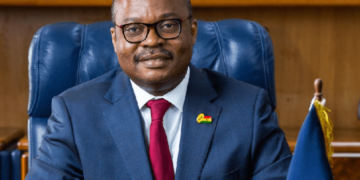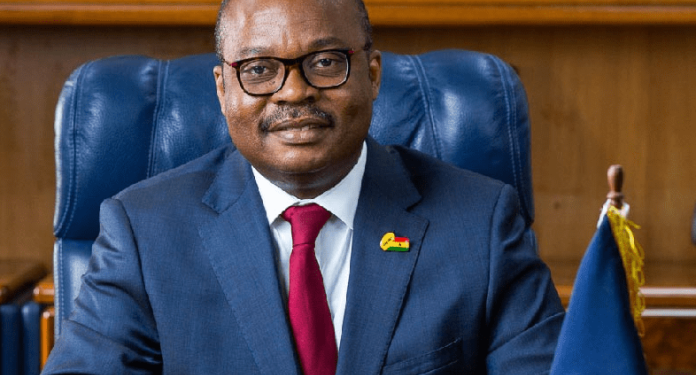The Bank of Ghana (BoG) and its immediate past Governor, Dr. Ernest Addison, have been dragged to court by a private citizen over what she describes as record-breaking exchange rate losses that have eroded her investments and purchasing power since 2017.
Balbir Violet Allan, an individual investor in government treasuries, filed the suit at the High Court, accusing the central bank and Dr. Addison of gross negligence in managing the value of the Ghanaian cedi. She claims the dramatic depreciation of the currency over the past eight years has significantly impacted her financially.
According to the writ, filed on her behalf by law lecturer Dr. John Baiden, Allan is seeking a declaration from the court that the Bank of Ghana failed in its statutory mandate to stabilize the cedi. She argues that the central bank’s inaction and poor currency management under Dr. Addison’s leadership led to devastating losses for ordinary citizens and investors alike.
At the heart of her complaint is the cedi’s depreciation from GHS 4.26 to USD 1 in 2017—when Dr. Addison assumed office—to GHS 15.49 to USD 1 by February 3, 2025, the day he proceeded on terminal leave.
“The currency, in my opinion, became one of the worst performing currencies in the world under Dr. Addison,” Allan states in the suit.
She further asserts that the consistent and steep depreciation resulted in significant exchange rate losses, a sharp erosion of her purchasing power, and remarkable capital losses on her investments.
Allan is therefore praying the court to hold the Bank of Ghana and Dr. Addison accountable, and to declare that the exchange rate losses she and others like her suffered are enforceable against both the institution and its former Governor.
The suit marks a rare instance of a citizen taking legal action against the country’s top monetary authority over macroeconomic outcomes. It also raises broader questions about accountability in economic governance, especially in the face of increasing financial hardship tied to currency instability.
Neither the Bank of Ghana nor Dr. Addison has responded publicly to the claims. The case is expected to generate significant public interest as it unfolds, particularly among investors, financial analysts, and advocates for stronger institutional responsibility.

































